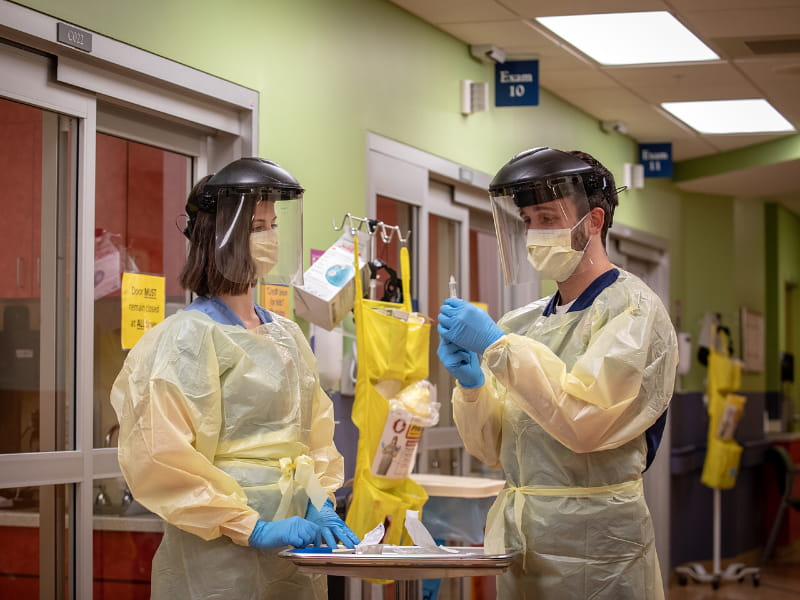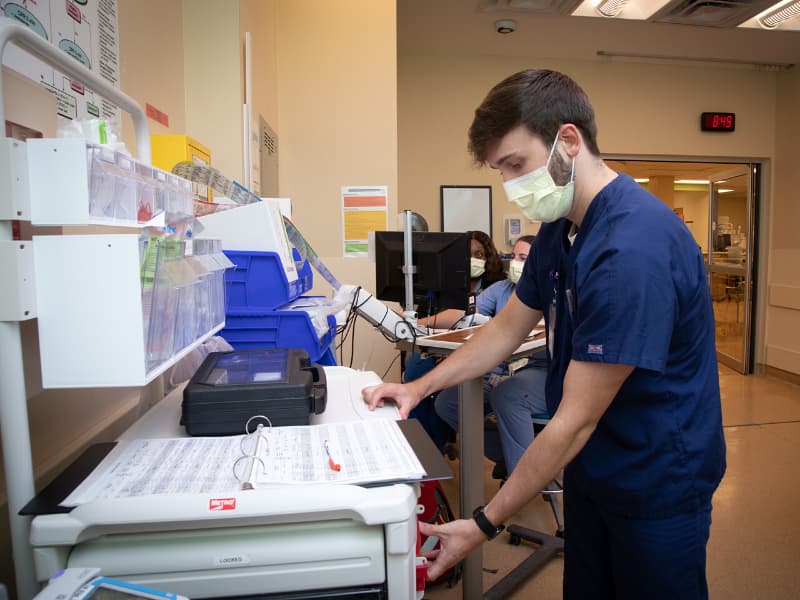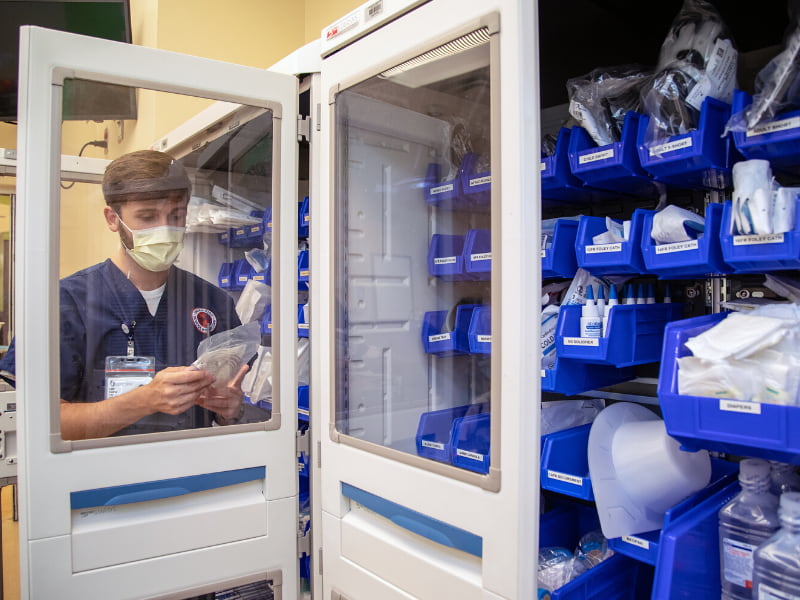UMMC places Oxford SON students in Jackson amid pandemic

The accelerated nursing students at the University of Mississippi in Oxford were in a bind.
During the third semester of the yearlong program, students complete their final clinical hours and prepare to graduate at the end of July. But when Mississippi confirmed its first positive case of COVID-19 on March 11, these students were uncertain what the future would hold.
The accelerated nursing program is already packed. During the first nine weeks of the fall semester, students spend most of the time in the lab learning skills: how to perform health assessments, inserting and removing Foley catheters, inserting IVs and the like.
The rest of the fall focuses on transitioning out of the lab and into the classroom, where students study content such as pathophysiology and pharmacology, among others. Spring is a continuation of classroom work that emphasizes collaborative decision making by having students work in small groups.

But this spring, those activities were cut short following the announcement students would not return to school after spring break due to the novel coronavirus. As a result, faculty and students were left wondering how they would finish the program.
“We had to think of creative ways to deliver team-based learning, testing and simulation experiences online,” said Dr. Eva Tatum, director of the Oxford Instructional Site and assistant professor of nursing. “It was definitely one of the faculty’s major challenges.”
The transition went well thanks to the Oxford faculty’s hard work, according to both Tatum and student Logan Christian of Lucedale.
“The transition from in-person to online was very smooth, and we’ve always been encouraged to reach out if we had any questions or concerns,” said Christian.
After transitioning the coursework online, another challenge arose. The local clinical sites in the Oxford and north Mississippi area were not yet allowing students back in the facilities. Now, 47 students had nowhere to complete their mandatory clinical hours to graduate.
The clock was ticking, and August, when the next cohort would begin, was fast approaching.
And as future nurses, they were itching to help during the pandemic – but didn’t have the means to do so.
So Tatum and Jessica Pickens, an instructor in the Oxford program, got in touch with School of Nursing counterparts at the University of Mississippi Medical Center in Jackson to ask for help. Dr. Tina Martin, interim assistant dean for undergraduate programs, and Dr. Ladonna Northington, associate dean for academic affairs, set up a meeting between the clinical contacts at UMMC and the clinical coordinators for both the Jackson and Oxford accelerated programs.

Over the course of several meetings, they worked out an agreement where UMMC would place all 47 students from the Oxford program with preceptors across UMMC’s four Jackson hospitals during June. Once those students finish 144 clinical hours each, the Jackson accelerated students will then complete their hours in July, allowing both groups to stay on schedule.
“The clinical educators and managers at UMMC have really gone above and beyond during this,” said Pickens. “Even as far as sitting down with students and helping them map out their clinical schedule and identifying back-up preceptors to make sure everyone gets the needed amount of hours.”
She said although it was a challenge to coordinate that many students in such a short time frame – on top of readjusting the June virtual class schedule to accommodate the increased clinical hours – everyone she worked with at UMMC was accessible and helpful.
They also helped make it possible for many students to work in an area where they indicated interest.
“With it being their final semester and half of their spring semester being altered, I wanted this to be the best experience that it could be,” said Pickens. “So we polled them about a week before the (summer) semester started and tried to accommodate those needs as best as I could.”
Christian, who is completing his hours in the pediatric emergency department, said his dream is to work at Children’s of Mississippi.
“It was just a huge blessing,” said Christian. “I’ve always felt really thankful for all our instructors, and we knew everyone at the Oxford campus was fighting for us and would make sure we got our clinical hours done by whatever means necessary.”
Fellow student Sarah Lambert Hollingsworth of Tupelo had a similar experience, ultimately landing in the pediatric intensive care unit at the Children’s Hospital.
Both students said the whole experience drove home the importance of being adaptable.
“I believe an important quality to have as a nurse is the ability to adapt and respond to adversity with discipline, compassion and integrity,” said Hollingsworth, whose original plans involved finishing her clinical hours at North Mississippi Medical Center in Tupelo. “For me, there was a quick acceptance of our new normal. I decided that how I could best prepare and serve my future patients was by making the most of every experience offered to me regardless of the environment.”
Christian had a similar take.
“There’s been a lot of grace shown (in this situation and during the COVID-19 pandemic),” said Christian. “And I think that’s a lot of what nursing is, having grace and compassion for people and also just being adaptable.”
The students will complete 144 clinical hours each this month at the Medical Center before heading back to Oxford.


